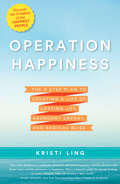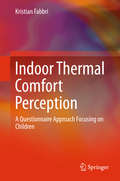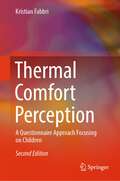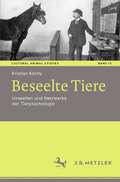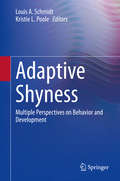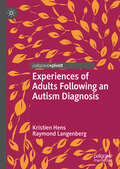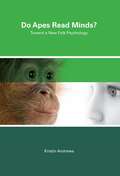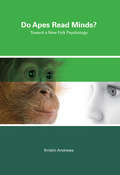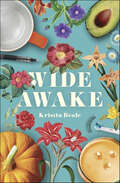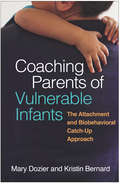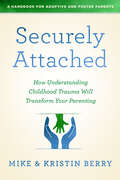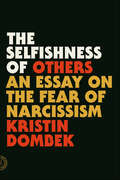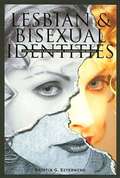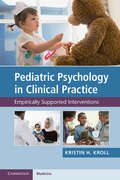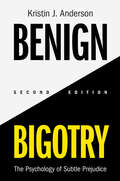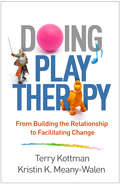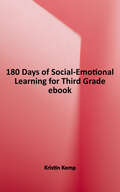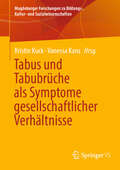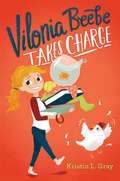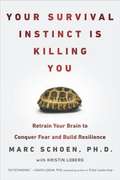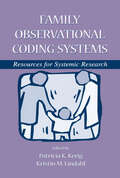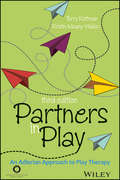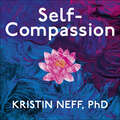- Table View
- List View
Operation Happiness: The 3-Step Plan to Creating a Life of Lasting Joy, Abundant Energy, and Radical Bliss
by Kristi LingIn Operation Happiness, happiness strategist and life coach Kristi Ling teaches you how to create immediate, positive shifts in your life by proving that happiness is a skill that can be cultivated, learned, and mastered--much like playing an instrument. After experiencing a long-term illness, a divorce, and the sudden deaths of loved ones, Ling spent years studying the science of happiness. She focused on identifying and testing specific emotional support tools. During this process, she discovered something that goes against everything we've been lead to believe about happiness: it isn't just something you feel; it's something you do. Based on this discovery, Ling outlines the three foundational principles that lead to a life of joy: Change Your View, Make Over Your Mornings, and Create New Habits.Part memoir and part how-to guide, Operation Happiness combines compelling personal stories, inspiring perspective shifts, and clear actionable steps to help you create a solid foundation for sustainable happiness that will propel you into a new, light-filled way of living.
Indoor Thermal Comfort Perception
by Kristian FabbriProviding a methodology for evaluating indoor thermal comfort with a focus on children, this book presents an in-depth examination of children's perceptions of comfort. Divided into two sections, it first presents a history of thermal comfort, the human body and environmental parameters, common thermal comfort indexes, and guidelines for creating questionnaires to assess children's perceptions of indoor thermal comfort. It then describes their understanding of the concepts of comfort and energy, and the factors that influence that perception. In this context, it takes into account the psychological and pedagogical aspects of thermal comfort judgment, as well as architectural and environmental characteristics and equips readers with the knowledge needed to effectively investigate children's perspectives on environmental ergonomics. The research field of indoor thermal comfort adopts, on the one hand, physical parameter measurements and comfort indexes (e. g. Predicted Mean Vote (PMV) or adaptive comfort), and on the other, an ergonomic assessment in the form of questionnaires. However the latter can offer only limited insights into the issue of comfort, as children often use different terms than adults to convey their experience of thermal comfort. The books aims to address this lack of understanding with regard to children's perceptions of indoor thermal comfort. The book is intended for HVAC engineers and researchers, architects and researchers interested in thermal comfort and the built environment. It also provides a useful resource for environmental psychologists, medical and cognitive researchers.
Thermal Comfort Perception: A Questionnaire Approach Focusing on Children (Springerbriefs In Applied Sciences And Technology Ser.)
by Kristian FabbriThis book offers a comprehensive exploration of children's understanding and experiences of thermal comfort. The book provides a methodology for evaluating comfort that takes into account the unique perspectives of children. The first part of the book provides an overview of the history of thermal comfort, the human body and environmental parameters, and common thermal comfort indexes. It also offers guidelines for creating questionnaires that accurately assess children's perceptions of indoor thermal comfort. The book then delves into children's understanding of the concepts of comfort and energy, as well as the factors that influence their perception of these concepts. It addresses the psychological and pedagogical aspects of thermal comfort judgment, as well as the architectural and environmental characteristics that contribute to children's perceptions of comfort. First published as Indoor Thermal Comfort Perception, this updated edition also includes new sections on architecture and sensitivity, exploring the impact of classroom spaces on learning, and outdoor education and thermal comfort outdoors, based on qualitative research. These additions provide valuable insights for future studies on these topics. While physical parameter measurements and comfort indexes are useful in thermal comfort, the book emphasizes the importance of ergonomic assessments in the form of questionnaires, which offer unique insights into children's experiences. The book fills a critical gap in understanding children's perceptions of thermal comfort and is essential reading for HVAC engineers, architects, environmental psychologists, and researchers in the medical and cognitive fields.
Beseelte Tiere: Umwelten und Netzwerke der Tierpsychologie (Cultural Animal Studies #13)
by Kristian KöchyDie Tierpsychologie ist zu Beginn des 20. Jahrhunderts eine prominente Forschungsrichtung zwischen Biologie, Psychologie und Philosophie. Sie fragt nach psychischen Vermögen von Tieren. In essayhaften Studien zu namhaften Protagonisten werden im Buch Forschungskontexte der Tierpsychologie vorgestellt. Die ausgewählten Positionen verstehen menschliche Wahrnehmung ebenso gestalthaft wie die Forschungsgegenstände, die Tiere in ihren Umwelten. Das Buch untersucht Beziehungen von Philosophie und Wissenschaft, skizziert aber zudem eine Philosophie der Tierforschung, die die Interaktion von menschlichen und tierlichen Subjekten anerkennt.
Adaptive Shyness: Multiple Perspectives on Behavior and Development
by Louis A. Schmidt Kristie L. PooleThis book examines the adaptive aspects of shyness. It addresses shyness as a ubiquitous phenomenon that reflects a preoccupation of the self in response to social interaction, resulting in social inhibition, social anxiety, and social withdrawal. The volume reviews the ways in which shyness has traditionally been conceptualized and describes the movement away from considering it as a disorder in need of treatment. In addition, it examines the often overlooked history and current evidence across evolution, animal species, and human culture, demonstrating the adaptive aspects of shyness from six perspectives: developmental, biological, social, cultural, comparative, and evolutionary. Topics featured in this book include:The study of behavioral inhibition and shyness across four academic generations.The development of adaptive subtypes of shyness.Shy children’s adaptation to academic challenges.Adaptiveness of introverts in the workplace.The role of cultural norms and values in shaping shyness.Perspectives of shyness as adaptive from Indigenous Peoples of North America.The role that personality differences play on ecology and evolution. Adaptive Shyness is a must-have resource for researchers and professors, clinicians and related professionals as well as graduate students in developmental psychology, pediatrics, and social work as well as related disciplines, including social/personality, evolutionary, biological, and clinical child psychology, anthropology, sociology, and cultural studies.
Experiences of Adults Following an Autism Diagnosis
by Kristien Hens Raymond LangenbergThis book explores adult experiences of autism diagnosis. Focusing on the experiences of 21 interviewees, the structure of the book mirrors the seven stages undergone upon diagnosis, and raises important questions about modern society and the self, amidst this life-changing news. Analysing a broad range of empirical interview data including adults who had experiences of other diagnoses, and adults who seemed to function normally before their autism diagnosis, the authors use these stories to examine how autism diagnosis can be extremely important and helpful, but also generate a great deal of negativity.Illuminating a range of testimonies that have previously been kept in the shadows, this book will not only appeal to students and scholars of autism in adults, but also to practitioners as well as adults who have been diagnosed with autism.
Do Apes Read Minds?
by Kristin AndrewsBy adulthood, most of us have become experts in human behavior, able to make sense of the myriad behaviors we find in environments ranging from the family home to the local mall and beyond. In philosophy of mind, our understanding of others has been largely explained in terms of knowing others' beliefs and desires; describing others' behavior in these terms is the core of what is known as folk psychology. In Do Apes Read Minds? Kristin Andrews challenges this view of folk psychology, arguing that we don't consider others' beliefs and desires when predicting most quotidian behavior, and that our explanations in these terms are often inaccurate or unhelpful. Rather than mindreading, or understanding others as receptacles for propositional attitudes, Andrews claims that folk psychologists see others first as whole persons with traits, emotions, and social relations. Drawing on research in developmental psychology, social psychology, and animal cognition, Andrews argues for a pluralistic folk psychology that employs different kinds of practices (including prediction, explanation, and justification) and different kinds of cognitive tools (including personality trait attribution, stereotype activation, inductive reasoning about past behavior, and generalization from self) that are involved in our folk psychological practices. According to this understanding of folk psychology -- which does not require the sophisticated cognitive machinery of second-order metacognition associated with having a theory of mind -- animals (including the other great apes) may be folk psychologists, too.
Do Apes Read Minds?: Toward a New Folk Psychology
by Kristin AndrewsAn argument that as folk psychologists humans (and perhaps other animals) don't so much read minds as see one another as persons with traits, emotions, and social relations.By adulthood, most of us have become experts in human behavior, able to make sense of the myriad behaviors we find in environments ranging from the family home to the local mall and beyond. In philosophy of mind, our understanding of others has been largely explained in terms of knowing others' beliefs and desires; describing others' behavior in these terms is the core of what is known as folk psychology. In Do Apes Read Minds? Kristin Andrews challenges this view of folk psychology, arguing that we don't consider others' beliefs and desires when predicting most quotidian behavior, and that our explanations in these terms are often inaccurate or unhelpful. Rather than mindreading, or understanding others as receptacles for propositional attitudes, Andrews claims that folk psychologists see others first as whole persons with traits, emotions, and social relations.Drawing on research in developmental psychology, social psychology, and animal cognition, Andrews argues for a pluralistic folk psychology that employs different kinds of practices (including prediction, explanation, and justification) and different kinds of cognitive tools (including personality trait attribution, stereotype activation, inductive reasoning about past behavior, and generalization from self) that are involved in our folk psychological practices. According to this understanding of folk psychology—which does not require the sophisticated cognitive machinery of second-order metacognition associated with having a theory of mind—animals (including the other great apes) may be folk psychologists, too.
Wide Awake
by Kristin BealeFor anyone who has wondered about the experience of objects that make up their everyday lives—Wide Awake is passing them the mic. Wide Awake is a collection of interviews with the inanimate objects that make up our everyday. The objects belong to Madison, a 20-something girl who is living on her own, in a relationship, and battling mental illness for the first time. The story unfolds through Madison’s journal entries, and through the perspectives of the objects of her life.
Coaching Parents of Vulnerable Infants: The Attachment and Biobehavioral Catch-Up Approach
by Mary Dozier Kristin BernardThis is the authoritative presentation of Attachment and Biobehavioral Catch-Up (ABC), the widely disseminated, evidence-based home-visiting intervention for parents of infants who have experienced adversity, such as homelessness, neglect, or institutional care. Vivid case examples--including one that runs throughout the book--illustrate the importance of responsive parenting for helping children develop secure attachments and key regulatory capacities. Over the course of 10 coaching sessions incorporating extensive in-the-moment comments and video feedback, ABC enhances parents' ability to follow their children’s lead, nurture when children are distressed, and avoid frightening behaviors. In a readable, accessible style, chapters describe adaptations for different populations (high-risk birth parents, foster parents, parents who have adopted internationally, and parents of toddlers) and provide guidelines for training and implementation.
Securely Attached: How Understanding Childhood Trauma Will Transform Your Parenting- A Handbook for Adoptive and Foster Parents
by Kristin Berry Mike BerryHas Trauma Affected the Child You&’re Caring For?Just as you prepared your home to welcome a new child, it is important to prepare your heart and mind—especially if the child has suffered from a background of trauma. Perhaps your invitation for love is met with hostility, and you find that this new member of your family rejects connection. If so, then it&’s critical to acknowledge the effects of trauma on a child&’s ability to attach.Mike and Kristin Berry realized this when they became adoptive and foster parents. In their twenty-year marriage, they have had the joy of adopting eight children and fostering twenty-three. They now offer guidance from their own journey to others parenting a child who has experienced past trauma. In Securely Attached, they offer practical insights that are supported by therapeutic and medical facts, so all parents can provide best for the children in their care. You&’ll learn:How trauma changes the brainHow to identify trauma-induced behaviorsHow to identify attachment disordersHow to advocate for your child in the community.Get the help you need to better care for the children in your home. Discover how you can create a family and home that is safe and supportive so your children can grow to trust and become securely attached.
Securely Attached: How Understanding Childhood Trauma Will Transform Your Parenting- A Handbook for Adoptive and Foster Parents
by Kristin Berry Mike BerryHas Trauma Affected the Child You&’re Caring For?Just as you prepared your home to welcome a new child, it is important to prepare your heart and mind—especially if the child has suffered from a background of trauma. Perhaps your invitation for love is met with hostility, and you find that this new member of your family rejects connection. If so, then it&’s critical to acknowledge the effects of trauma on a child&’s ability to attach.Mike and Kristin Berry realized this when they became adoptive and foster parents. In their twenty-year marriage, they have had the joy of adopting eight children and fostering twenty-three. They now offer guidance from their own journey to others parenting a child who has experienced past trauma. In Securely Attached, they offer practical insights that are supported by therapeutic and medical facts, so all parents can provide best for the children in their care. You&’ll learn:How trauma changes the brainHow to identify trauma-induced behaviorsHow to identify attachment disordersHow to advocate for your child in the community.Get the help you need to better care for the children in your home. Discover how you can create a family and home that is safe and supportive so your children can grow to trust and become securely attached.
The Selfishness of Others: An Essay on the Fear of Narcissism
by Kristin DombekThey're among us, but they are not like us. They manipulate, lie, cheat, and steal. They are irresistibly charming and accomplished, appearing to live in a radiance beyond what we are capable of. But narcissists are empty. No one knows exactly what everyone else is full of--some kind of a soul, or personhood--but whatever it is, experts agree that narcissists do not have it.So goes the popular understanding of narcissism, or NPD (narcissistic personality disorder). And it's more prevalent than ever, according to recent articles in The New York Times, The Atlantic, and Time. In bestsellers like The Narcissism Epidemic, Narcissists Exposed, and The Narcissist Next Door, pop psychologists have armed the normal with tools to identify and combat the vampiric influence of this rising population, while on websites like narcissismsurvivor.com, thousands of people congregate to swap horror stories about relationships with "narcs."In The Selfishness of Others, the essayist Kristin Dombek provides a clear-sighted account of how a rare clinical diagnosis became a fluid cultural phenomenon, a repository for our deepest fears about love, friendship, and family. She cuts through hysteria in search of the razor-thin line between pathology and common selfishness, writing with robust skepticism toward the prophets of NPD and genuine empathy for those who see themselves as its victims. And finally, she shares her own story in a candid effort to find a path away from the cycle of fear and blame and toward a more forgiving and rewarding life.
Lesbian and Bisexual Identities: Constructing Communities, Constructing Selves
by Kristin G. EsterbergThis book examines the stories of lesbian and bisexual women in a Northeast community who share who they are, how they have come to see themselves as lesbian or bisexual, and what those identities mean to them. Drawing on social constructionist approaches to identity, Kristin G. Esterberg argues that identities are multiple and contingent. Created within the context of specific communities and within specific relationships, lesbian and bisexual identities are ways of sorting through experiences of desires and attractions, relationships, and politics. Their meanings change over time as women grow older and have more varied experiences, as the communities and sociopolitical worlds in which they live change, and as their life circumstances alter. In interviews conducted over a four-year time period, women describe the lesbian community they live in; how they see its structure, its social groups, its informal rules and norms for behavi and their places inside -- or on the margins of -- the community. Lesbian and Bisexual Identities reveals how women fall in and out of love, how they "perform" lesbian or bisexual identity through clothing, hairstyle, body language, and talk, and many other aspects typically not considered. The women present a variety of accounts. Some consider themselves "lesbian from birth" and have constructed their lives accordingly, while others have experienced significant shifts in their identities, depending on the influences of feminism, progressive politics, the visibility of the lesbian community, and other factors. Esterberg offers vivid accounts that defy the stereotypes so commonly offered. Lesbian and Bisexual Identities not only presents women's stories in their own words, it moves beyond storytelling to understand how these accounts resonate with social science theories of identity and community.
Pediatric Psychology in Clinical Practice: Empirically Supported Interventions
by Kristin H. KrollThis book serves as a practical guide for mental health practitioners working with children and adolescents with chronic medical concerns. It provides key information on current research and the theoretical foundations underlying many evidence-based assessments and interventions. Based on the current literature, readers are given empirically grounded practical guidance on how to assess patients, implement key clinical interventions, and navigate clinical dilemmas that may arise in different situations. The book covers common issues specific to working with young children, school aged-children, and adolescents, as well as particular medical conditions, and how to conceptualize and treat these concerns. Reproducible worksheets are provided to help clinicians apply what they learn to their clinical practice and to better manage common challenges. This readable book will be an invaluable introduction to the junior clinician, as well as a handy resource for the experienced practitioner, who can refer to relevant sections as specific problems arise.
Benign Bigotry: The Psychology of Subtle Prejudice
by Kristin J. AndersonBenign Bigotry delves into the multifaceted landscape of prejudice, spanning academic and scientific research, popular culture, and contemporary politics. At its core lies the concept of subtle prejudice-a pervasive, often unconscious bias in race, gender, and sexuality. Through meticulous analysis and the author's own experience serving eight years on the Police Oversight Board, this book exposes seven seemingly harmless cultural myths that perpetuate inequality. It also confronts prejudices against women and LGBTQ+ individuals, offering concrete strategies to dismantle entrenched beliefs. Designed as a textbook for undergraduate and graduate classes, yet accessible to the educated lay reader, each chapter caters to those interested in psychology, sociology, business, and education. With a valuable new chapter on systemic inequality, updated real-life examples, and engaging with the exploration of empirical research on discrimination and prejudice emerging since 2009, this second edition is not to be missed.
Doing Play Therapy: From Building the Relationship to Facilitating Change (Creative Arts and Play Therapy)
by Terry Kottman Kristin K. Meany-WalenCovering the process of therapy from beginning to end, this engaging text helps students and practitioners use play confidently and effectively with children, adolescents, and adults struggling with emotional or behavioral problems or life challenges. With an accessible theory-to-practice focus, the book explains the basics of different play therapy approaches and invites readers to reflect on and develop their own clinical style. It is filled with rich case material and specific examples of play techniques and strategies. The expert authors provide steps for building strong relationships with clients; exploring their clinical issues and underlying dynamics; developing and working toward clear treatment goals; and collaborating with parents and teachers. A chapter on common challenges offers insightful guidance for navigating difficult situations in the playroom.
180 Days of Social-emotional Learning For Third Grade (180 Days of Practice Ser.)
by Kristin KempAn effective third-grade workbook that provides daily social and emotional learning (SEL) activities to help students explore emotions, actions, relationships, and decision-making. The daily activities connect to the CASEL competencies, mindfulness, and key effective education initiatives. This SEL workbook makes at-home learning, whole class instruction, or small group support, quick and easy. Help students build self-awareness, analyze relationships, discover diverse perspectives, and apply what they have learned with engaging lessons. The use of fiction and nonfiction text allows for self-reflection and growth. Parents appreciate the teacher-approved activity books that keep their child engaged and learning. Great for homeschooling, reinforcing learning at school, and building connections between home and school. Teachers rely on the daily practice workbooks to save them valuable time. The ready-to-implement activities are perfect to introduce SEL topics for discussion.
Tabus und Tabubrüche als Symptome gesellschaftlicher Verhältnisse (Magdeburger Forschungen zu Bildungs-, Kultur- und Sozialwissenschaften)
by Kristin Kuck Vanessa KanzDer Sammelband behandelt aus den Perspektiven der Kultur- und Gesellschaftswissenschaften das Phänomen Tabu und seine vielseitigen Ausprägungen schwerpunktmäßig in der zeitgenössischen europäischen Gesellschaft. Zwar entstammt das Konzept selbst den polynesischen Gesellschaften, die durch Seefahrer im 18. Jahrhundert entdeckt wurden, aber durch Missionsbewegungen in der Ferne, Romantisierungen in der Heimat und die europäische Aufklärung entwickelte sich ein ganz eigenes Tabukonzept in Europa, das bis heute starke sozial ordnende Effekte hat. Tabus legen fest, was von Mitgliedern einer Gruppe an Gedanken, Handlungen, Gefühlen und Themen zugelassen wird und was nicht, und gleichzeitig sind Tabubehauptungen und Tabubrüche auch Thematisierungsstrategien. Der Band folgt daher der These, dass Tabugrenzen nicht nur stetig ausgehandelt werden, sondern auch als soziale Konstrukte gesellschaftliche Verhältnisse wiederspiegeln. Enttabuisierungsbestrebungen, beispielsweise in Bezug auf psychische Krankheiten oder auf die Kommunikation von Gewalterfahrungen werden heutzutage oft mit Hochwertkonzepten wie Selbstbestimmung, Diversität und Gleichberechtigung legitimiert. Gleichzeitig verschärfen sich auch Tabugrenzen, wenn es z. B. um die Stigmatisierung von Diskriminierung geht. Veränderungen in den Tabugrenzen sind also nicht zufällig, sondern Ausdruck von gesellschaftlichen Verhältnissen und Entwicklungen. Die Beiträge werfen aus den verschiedenen Perspektiven verschiedener kultur- und gesellschaftswissenschaftlicher Fächer Schlaglichter auf Forschungen, die mit Tabus umgehen und umgehen müssen. Sie geben so einen Einblick in aktuelle Aushandlungen zwischen dem Tabuisierten und dem Nicht-(Mehr)-Tabuisierten.
Vilonia Beebe Takes Charge
by Kristin L. GrayVilonia is determined to prove she’s responsible enough to care for a dog in this hilarious and utterly lovable debut novel.Being responsible is NOT easy. Fourth grader Vilonia hasn’t lost her rain coat in the three weeks she’s had it and she’s brushed her teeth every night and she’s volunteered to be the Friday Library Helper. But all that hard work is worth it if it means she can get a dog. Besides, this dog isn’t just because Vilonia has wanted one for pretty much ever. It’s also to help Mama, who’s been lost in one, big sadness fog for forty-three days—ever since Nana died. But Vilonia read that pets can help with sadness. Now all she has to do is keep the library goldfish alive over spring break, stop bringing stray animals home, and help Mama not get fired from her job. And she’s got to do all of it before the Catfish Festival. Easy as pie, right? Tremendous voice, humor, and heart make this debut novel utterly lovable.
Your Survival Instinct Is Killing You
by Kristin Loberg Marc SchoenStop running. Nothing is chasing you. Thanks to technology, today's world is more comfortable than ever, but our survival instinct that evolved to protect us from danger is on high alert. Though mild discomforts such as work demands, traffic jams, family conflict, or having to perform under pressure are not life threatening, they can still trigger the brain's fight or flight fear reaction. And this response can lead to a reliance on drugs, alcohol, overeating, insomnia, phobias, chronic pain, illness, or just losing our temper for no apparent reason. In this eye-opening book, psychologist Dr. Marc Schoen offers practical strategies to tame your overly reactive survival instinct and conquer fear, build resilience, boost decision-making, and improve every aspect of your life.
Your Survival Instinct Is Killing You: Retrain Your Brain to Conquer Fear and Build Resilience
by Kristin Loberg Marc SchoenThanks to technology, we live in a world that's much more comfortable than ever before. But here's the paradox: our tolerance for discomfort is at an all-time low. And as we wrestle with a sinking "discomfort threshold," we increasingly find ourselves at the mercy of our primitive instincts and reactions that can perpetuate disease, dysfunction, and impair performance and decision making. Designed to keep us out of danger, our limbic brain's Survival Instinct controls what we intuitively do to avert injury or death, such as running out of a burning building. Rarely are we required to recruit this instinct today because seldom do we find ourselves in situations that are truly life-threatening. However, this part of our brain is programmed to naturally and automatically react to even the most benign forms of discomfort and stress as serious threats to our survival. In this seminal book we learn how the Survival Instinct is the culprit that triggers a person to overeat, prevents the insomniac from sleeping, causes the executive to unravel under pressure, leads travelers to avoid planes or freeways, inflames pain, and due to past heartache, closes down an individual to love. In all of these cases, their overly-sensitive Survival Instinct is being called into action at the slightest hint of discomfort. In short, their Survival Instinct is stuck in the "ON" position...with grave consequences. Your Survival Is Killing You can transform the way you live. Provocative, eye-opening, and surprisingly practical with its gallery of strategies and ideas, this book will show you how to build up your "instinctual muscles" for successfully managing discomfort while taming your overly reactive Survival Instinct. You will learn that the management of discomfort is the single most important skill for the twenty-first century. This book is, at its heart, a modern guide to survival.
Family Observational Coding Systems: Resources for Systemic Research
by Patricia K. Kerig Kristin M. LindahlCODING MANUAL INFORMATION IS AVAILABLE FROM THE CHAPTER AUTHORS, AND THEIR E-MAIL ADDRESSES CAN BE FOUND ON PAGE XV OF THE BOOK.Family studies is an area that has enjoyed the benefits of conceptual and methodological advances in recent years including the widespread adoption of observational research techniques. The selection of an appropriate coding system is critical to achieving a better understanding of the complex family processes related to normative and pathological development. This book presents 14 examples of family observational coding systems, chosen for the wide range of constructs and phenomena they capture. Each system is described in detail, and excerpts from the coding manual are presented (links to the full coding manuals are available to purchasers of the book at LEA's Web site, www.erlbaum.com). Each chapter follows a consistent outline, so that the different coding systems can be more easily compared to one another. They include the theoretical underpinnings of the measure, its reliability and validity, the coding process, strategies for coder training, and examples of studies in which it has been used. This volume will prove invaluable to students and researchers in family studies, clinicians, and other practitioners who need to interpret data from family observations.
Partners in Play: An Adlerian Approach to Play Therapy
by Terry Kottman Kristin Meany-WalenPlay therapy expert Terry Kottman and her colleague Kristin Meany-Walen provide a comprehensive update to this spirited and fun text on integrating Adlerian techniques into play therapy. Clinicians, school counselors, and students will find this to be the definitive guide for using Adlerian strategies with children to foster positive growth and effective communication with their parents and teachers. After an introduction to the basics of the approach and the concepts of Individual Psychology, the stages of Adlerian play therapy are outlined through step-by-step instructions, detailed treatment plans, an ongoing case study, and numerous vignettes. In addition to presenting up-to-date information on trends in play therapy, this latest edition emphasizes the current climate of evidence-based treatment and includes a new chapter on conducting research in play therapy. Appendixes contain useful worksheets, checklists, and resources that can be easily integrated into practice. Additional resources related to this book can be found in the ACA Online Bookstore at www.counseling.org/publications/bookstore and on Terry Kottman’s website encouragementzone.com. *Requests for digital versions from ACA can be found on www.wiley.com. *To purchase print copies, please visit the ACA website. *Reproduction requests for material from books published by ACA should be directed to permissions@counseling.org.
Self-Compassion: The Proven Power of Being Kind to Yourself
by Kristin NeffKristin Neff PhD, is a professor in human development whose 10 years' of research forms the basis of her timely and highly readable book. Self Compassion offers a powerful solution for combating the current malaise of depression, anxiety and self criticism that comes with living in a pressured and competitive culture. Through tried and tested exercises and audio downloads, readers learn the 3 core components that will help replace negative and destructive measures of self worth and success with a kinder and non judgemental approach in order to bring about profound life change and deeper happiness. Self Compassion recognises that we all have weaknesses and limitations, but in accepting this we can discover new ways to achieve improved self confidence, contentment and reach our highest potential. Simply, easily and compassionately. Kristin Neff's expert and practical advice offers a completely new set of personal development tools that will benefit everyone.(P)2019 Hodder & Stoughton Limited
